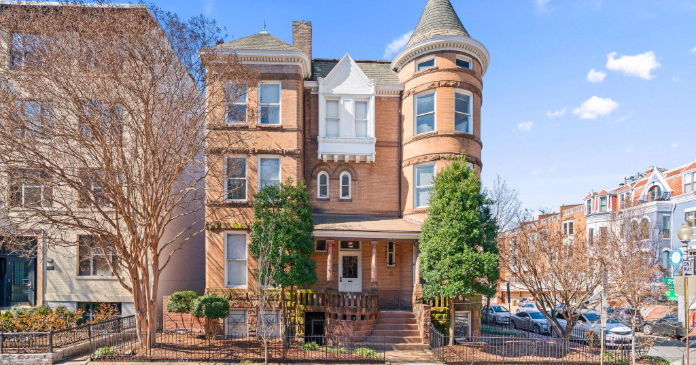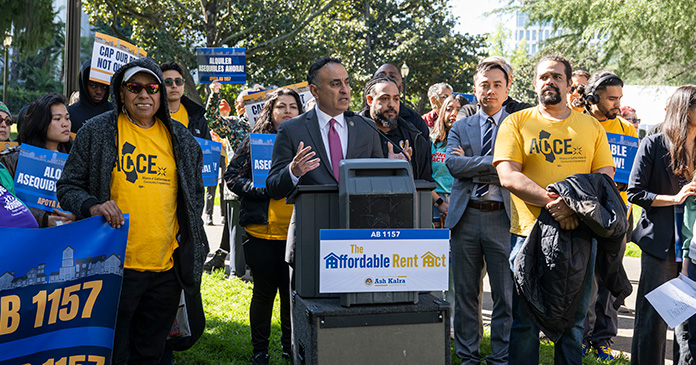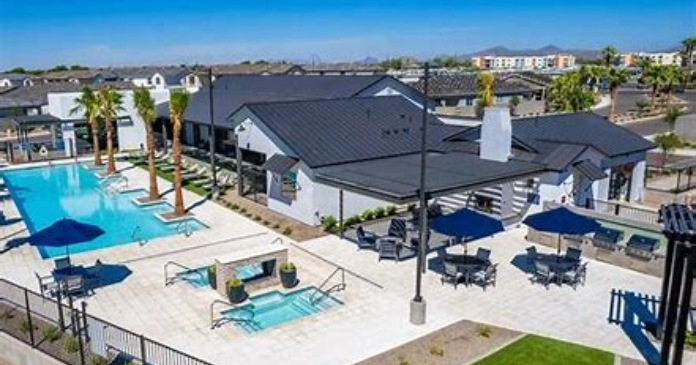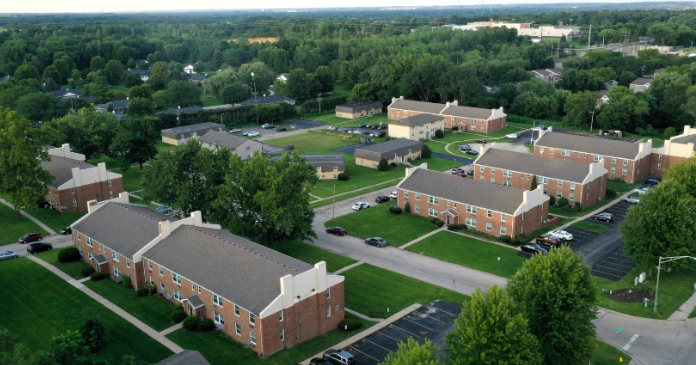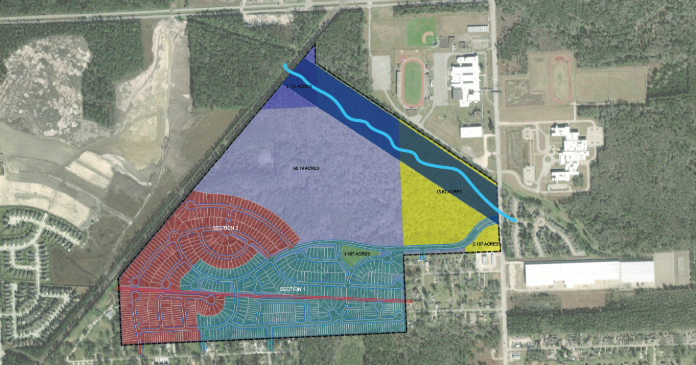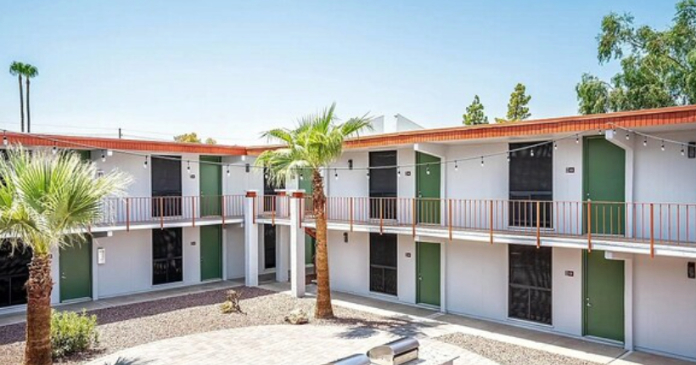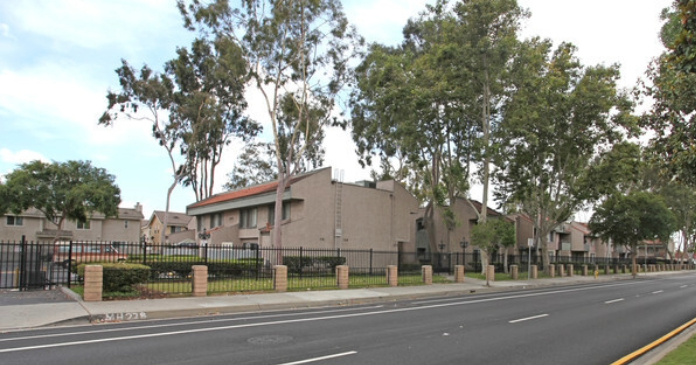Much of the recent activity occurred in the Sunbelt, where considerable job growth is taking place, but Berwind Property Group (BPG) recently took down 22 assets in the slow-but-steady Philadelphia suburbs, right in the company’s own backyard.
“You may not have tremendous job growth in Philadelphia, but what you also don’t have is a tremendous amount of construction. There are true barriers to entry that make this area a steady performer,” said Joseph Mullin, president and CEO of Madison Apartment Group, BPG’s multifamily operations arm.
Job growth in Philadelphia is expected to slow to around 16,500 new positions this year, down from 47,000 new jobs in 2006, and, according to Marcus & Millichap, could result in a 20-basis-point rise in vacancy to 4.4 percent, but a bit less in the Class B and C sectors, which is expected to perform with persistent vigor.
Berwind Property Group (BPG) paid National Properties $314 million, or a little more than $91,000 per unit, for the 3,437 units in Philadelphia that were 95 percent occupied at close of escrow. The portfolio is the largest to change hands in the state of Pennsylvania in recent years. “It’s very unusual to have a portfolio in the Northeast, especially this size, come available,” said Mullin, who puts the cap rate for the value-added transaction at around 6.5 percent. “What makes the portfolio attractive is that half the assets were built after 1990 and the other half in the 1970s and early 1980s.” BPG plans to spend around $5 million to bring the older assets up to today’s standards.
BPG expects to be an active buyer over the next three to five years and will continue to search out portfolio deals. “With the amount of equity we have, we love to buy in bulk. And we have an operating company that can come in and do the due diligence and all the work, so, for us, it’s an efficient way to buy. Instead of doing one deal, we can do 22,” said Mullin.
The Philly transaction, which brings BPG’s multifamily portfolio to slightly more than 24,000 units in 20 markets across the nation, was funded by BPG’s $500 million Investment Partnership VII private equity fund and an institutional investor. “When that fund is wrapped up this summer, we’ll go right into BPG Investment Partnership VIII that probably will have about $800 million in equity,” said Mullin, adding that about one-third of the company’s fund activity is allocated to multifamily. Earlier in January, BPG increased its commercial holdings with the $251 million acquisition of an industrial portfolio.
Sunbelt heats up
This year’s Sunbelt transactions include a 2,386-unit portfolio in West Houston that was scooped up by the Irvine, Calif.-based Bethany Group. Bethany acquired the eight Class B and C assets from Sendera Investment Group for close to the asking price of $115.4 million. Austin-based Sendera purchased the mostly one- and two-bedroom communities in 2003 and spent around $8 million on repositioning, but was unable to complete its program when the Houston market soured.
Bethany acquired all but one of the properties — the 121-unit Sendera Point, which consists of ones and efficiencies, and isn’t a fit with Bethany’s portfolio. That asset is being marketed to mom-and-pop buyers at an asking price of $3.1 million. The portfolio, located primarily outside Beltway 8, was 90 percent occupied at close of escrow. Bethany plans to spend around $7,000 per door to upgrade the communities that average 30 years old.
Ryan Terrell, a broker with Hendricks & Partners’ Houston office, said cap rates on value-added Class B- and C assets in Houston are around 7 percent and the market is on fire. Terrell still sees money coming in from California, as owners there continue to cash out and double their buying power in places like Texas and Georgia. But he’s beginning to see waning interest from 1031 exchange buyers from the Sunshine and Golden States as transactions in those states slow. Filling the breach is 1031 money from Tucson, Phoenix and Las Vegas — markets where condos still are selling.
Meanwhile, institutional investors are willing to pay top dollar for Class A assets like the 12 properties Equity Residential is marketing for sale in Houston’s Energy Corridor, Central Business District, Westchase and Medical Center sub-markets. Brokers with CB Richard Ellis began accepting offers in February for the 3,319 units that were built from seven to 12 years ago. The portfolio, with average rents of $949, is around 95 percent occupied. Similar properties in those Class A sub-markets sold recently for $105,000 to $115,000 per unit.
Equity Residential also listed for sale four properties with a total of 1,593 units and almost 80 acres of developable land in Nashville, in its continued effort to focus on high-barrier coastal and Sunbelt markets. Apartment Realty Advisors Broker Vince Lefler is marketing the portfolio. Along with William Shippen and John Weber, Lefler handled the recent sale of a three-property, 1,840-unit portfolio in Birmingham, Ala., for the Fifteen Group.
The buyer, Atlanta-based Miles Properties paid $57.5 million, or $31,250 per unit, for the 35-year-old, 642-unit Aspen Ridge, and the 29-year-old, 644-unit Aspen Trail in Homewood, and the 24-year-old, 554-unit Aspen Run in Birmingham. Occupancy across the portfolio averaged 61.1 percent, significantly lower than the 95.2 percent average in the Birmingham market and the 90 percent average in the Homewood area. The transaction is Miles Properties’ first in the market and its largest ever. Not only did Miles gain economies of scale in the market, the company that owns 20,000 units across Texas, Florida and Georgia is using the transaction as a springboard to a major expansion.
A number of value-added investors are showing interest in the Birmingham market. As 2006 drew to an end, Colonial Properties Trust sold a three-property, 2,284-unit portfolio located in Birmingham and Huntsville, Ala., to Collins Group LLC for around $155 million. The assets include the 1,080-unit Colonial Grand at Galleria and the 468- unit Colonial Grand at Riverchase Trails in Birmingham and the 768- unit Colonial Village at Research Park in Huntsville, about 100 miles north of Birmingham. The assets were 95 percent occupied at close of escrow. The Lightstone Group provided equity and GE Capital provided debt financing. Earlier in the year, the company closed a record- breaking deal (in terms of size) in Alabama with the purchase of 2,331 units in Homewood and Hoover — two of Birmingham’s best sub-markets, from Landmark Properties Trust for $138 million. The six communities received a $17 million overhaul over the past five years and Collins is adding value on the management side.
Collins is on a portfolio buying spree, adding $400 million in apartment assets to its portfolio last year. In January, the company entered Knoxville, Tenn., with the $60 million purchase of 1,166 units from Wilkinson Properties in a deal that bought Collins five value-added assets in west Knoxville’s growth corridor. The company plans a $3 million renovation program that includes kitchen and bath upgrades, after which Collins VP of Acquisitions Jay Herman expects to raise rents by as much as 20 percent.
Alliance Residential and JV partner AEW Capital picked up a portfolio of 15 assets with a total of 3,959 units in the Southwestern U.S. that had been owned jointly by Colonial Properties Trust and DRA Advisors. Colonial held the management contracts and a 24 percent interest in the properties. The portfolio includes three assets each in Albuquerque and Las Vegas. The rest are spread across Phoenix, Scottsdale and Tucson.
“We’ve done a number of acquisitions with AEW, but this is our first portfolio with them. The premise of the joint venture is that we have a great deal of management and construction expertise allowing us to reposition the assets in the marketplace,” said Alliance Residential VP of Acquisitions John Cunningham, adding that the all-in cost of the acquisition, including renovations, is around $500 million.
The portfolio includes both Class A and B communities. “We liked this deal because there was an opportunity to look at these assets on an individual basis and acquire them in a portfolio,” said Cunningham, who expects the company will hire about 100 new employees, mostly at the property level. The company’s main office is in Phoenix, but, with a regional office in Las Vegas, Alliance already has a presence in that market and is developing two communities there.
Alliance completed about $1.5 billion in production last year, equally weighted between development and acquisition. Cunningham hopes to ramp up to $2 billion in total production next year. “We’ll be slightly more weighted towards development. It’s still a very competitive environment for acquiring assets. The condo converters were a short-term anomaly that wasn’t expected to last very long and didn’t. We like the opportunity to acquire below replacement value and we see a tremendous number of buyers for new construction, as well,” he said.





